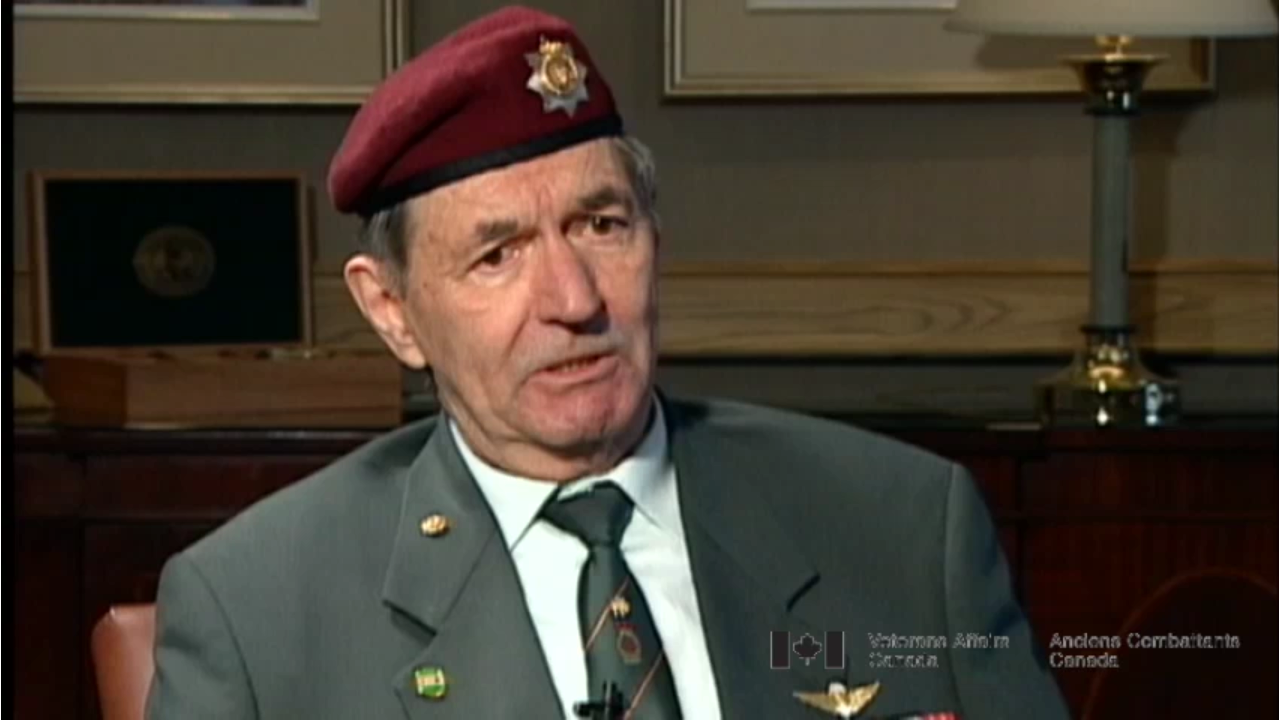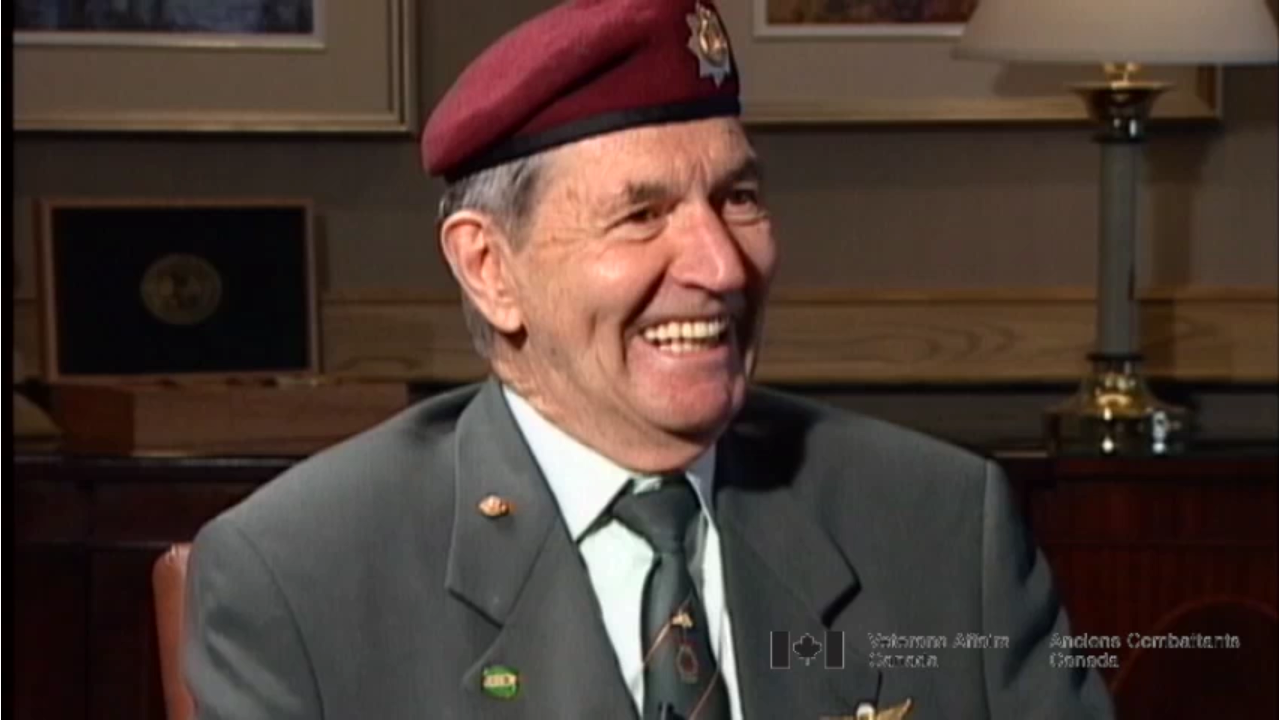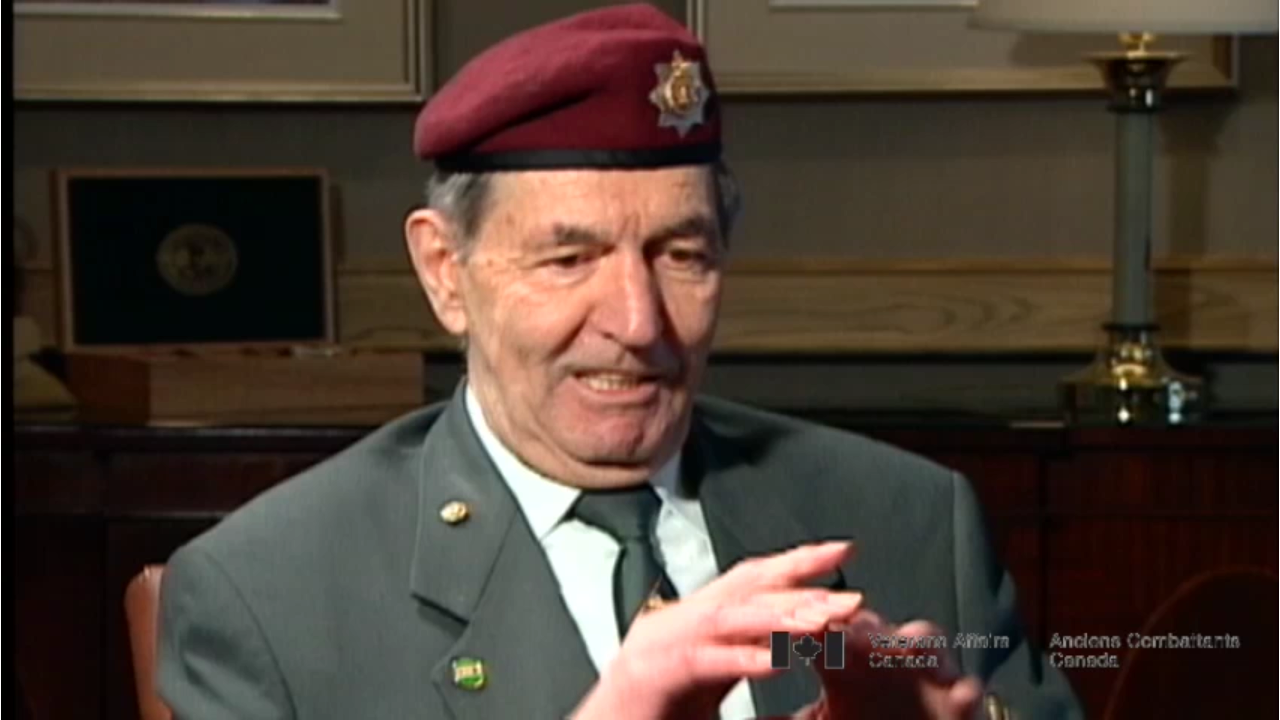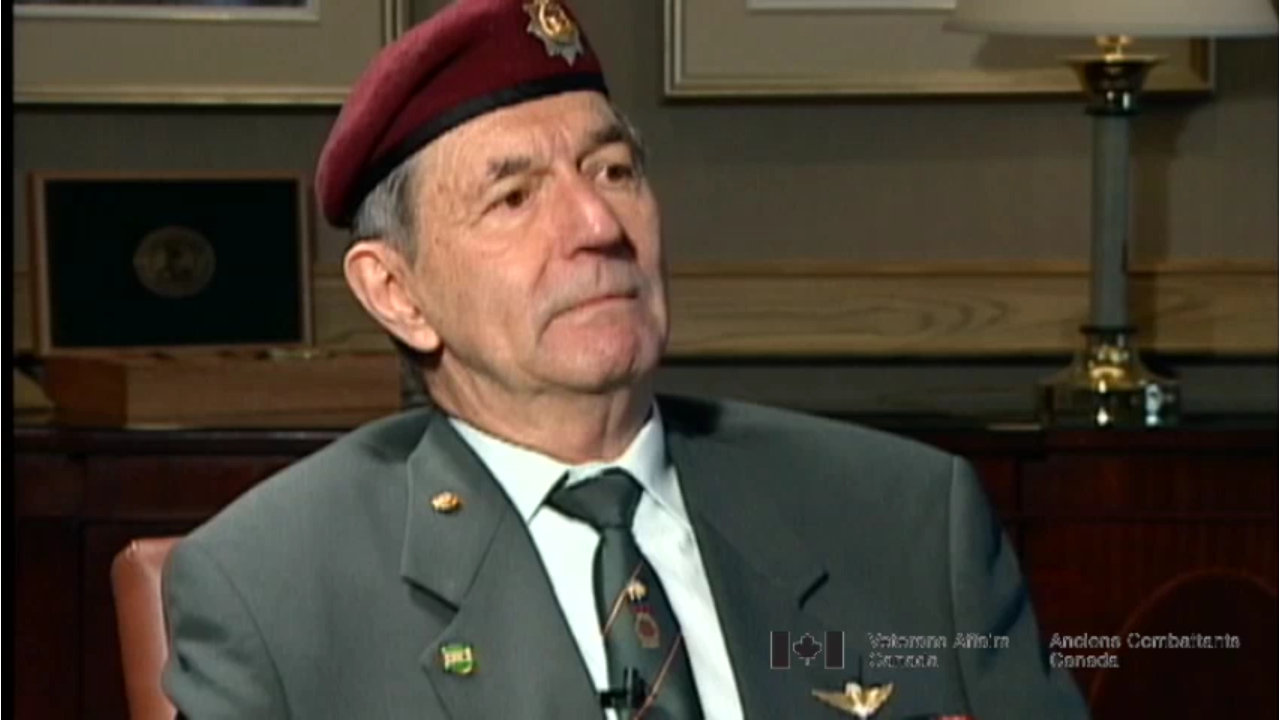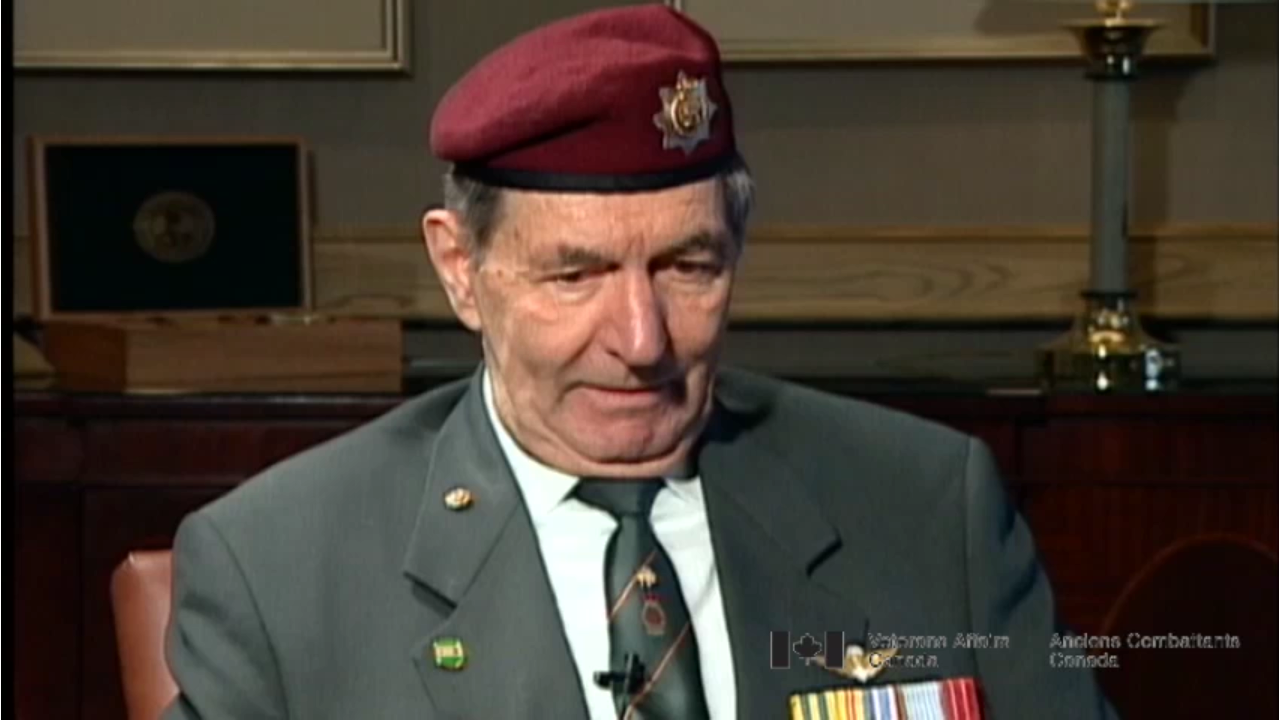Prejudice From ‘Real War’ Veterans
Heroes Remember
Prejudice From ‘Real War’ Veterans
Transcript
Description
Mr. Himes recalls the poor attitude of the legions and their members toward Korean War Veterans upon their return home. He describes one particular instance of prejudice during his first attempt to join the legion.
Kenneth Albert Himes
Mr Himes was born February 6, 1932, in Fort William, Ontario. He left school while in Grade 6, and worked at various jobs. After joining the Militia in an attempt to make money, he was posted to Churchill in the medical corp. While there he met men from the Royal Canadian Regiment (RCR) on training - he was so impressed with their skill and level of training, that he decided to join the RCR, and no other unit, as soon as he came of age. Canada was already looking for volunteers for Korea at the time Mr Himes became eligible to join, and thus was sent to Winnipeg the same day he signed on. After basic training in Petawawa, special training in Wainwright, and mountain training in Jasper, Mr Himes was notified Christmas Day 1952 that the RCR would be shipped to Korea - they arrived in Seoul in late April. Within two weeks of arriving in Korea, Mr Himes found himself in the middle of the Battle at Hill 187 - it would prove to be the worst action he participated in during his tour. After the peace accord was signed, Mr Himes remained in Korea with the RCR for an additional 8 months, patrolling the demilitarized zone. Having 3 years served under his belt, Mr Himes left the military soon after returning to Canada, but joined the RCR again when he found himself out of work. He remained with the RCR until he retired from active service in 1962.
Meta Data
- Medium:
- Video
- Owner:
- Veterans Affairs Canada
- Duration:
- 02:35
- Person Interviewed:
- Kenneth Albert Himes
- War, Conflict or Mission:
- Korean War
- Location/Theatre:
- Canada
- Branch:
- Army
- Units/Ship:
- Royal Canadian Regiment
- Rank:
- Corporal
Related Videos
- Date modified:



